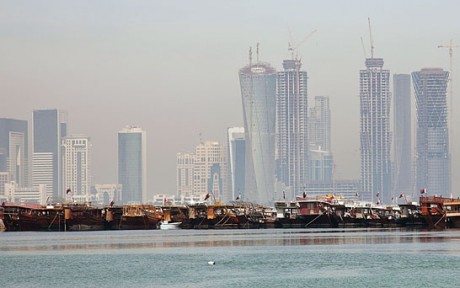Doha talks – will nations show strength to take concrete steps against climate change?
 Almost two hundred nations are meeting in Doha to make a decision on how to rein in escalating greenhouse gas emissions, but many worry that this meeting can too fail to produce the desired results.
Almost two hundred nations are meeting in Doha to make a decision on how to rein in escalating greenhouse gas emissions, but many worry that this meeting can too fail to produce the desired results.
In case the participating nations fail to agree on an extension of the United Nations' Kyoto Protocol, then the new deal that aims to unite the developed and developing nations in the fight against global warming from 2020 could also collapse. It may be noted here that Kyoto Protocol is a legally binding plan for slashing carbon emissions by developed nations.
Samantha Smith, leader of global climate & energy work at the conservation group WWF, remained pessimistic about the ongoing talks on climate change. Speaking on the topic, he said, "The climate talks so far have not produced anything like the results that the science tells us that we need."
Speaking about the November 26 to December 7 climate talks in Qatar, Washington-based think-tank World Resources Institute's President, Andrew Steer, said that there was urgent need to do something to fight back climate change as the problem could no longer be ignored as a tomorrow's problem.
A recent study by United Nations warned that the globe would suffer an increase of between 3 and 5 degrees Celsius in temperatures due to escalating emissions. Increased temperatures would cause sea levels to rise and floods, droughts and heatwaves to hit continents more frequently.
Two years back, a United Nations conference had agreed to limit any increase in temperatures to below 2 degrees Celsius above pre-industrial times, but emissions hit a new record last year.
And nations are still reluctant to take concrete steps to arrest the problem of escalating greenhouse gas emissions.